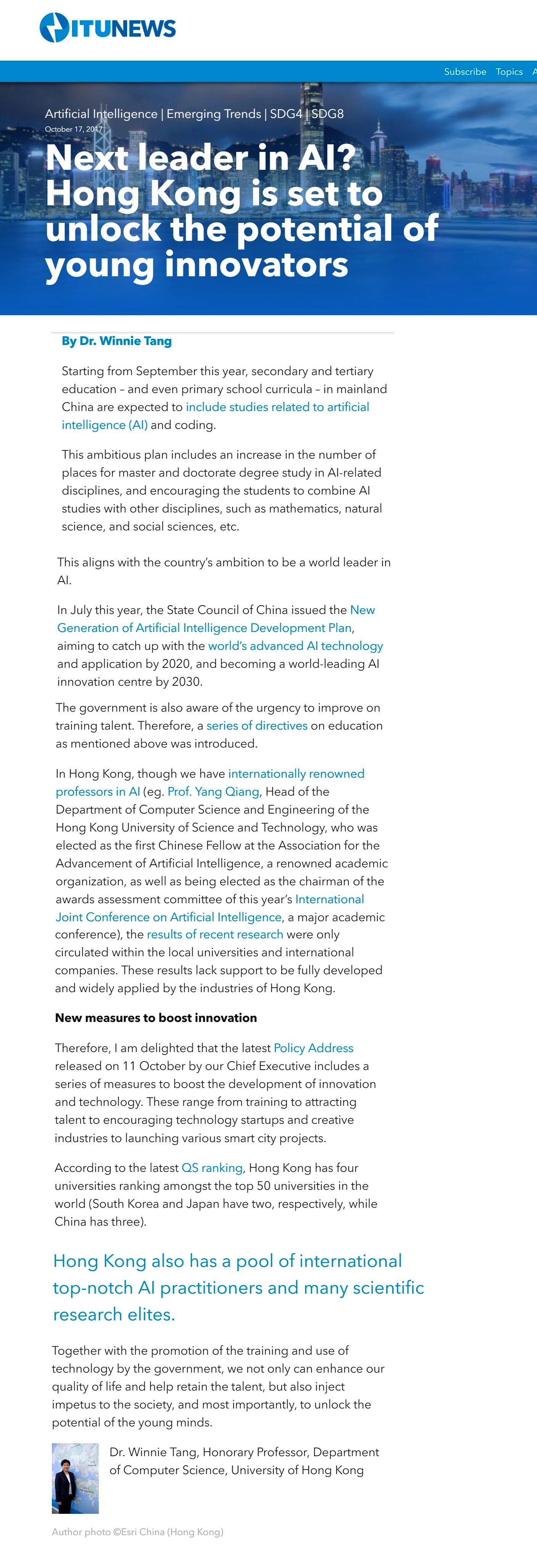網上版請按此

Next leader in AI? Hong Kong is set to unlock the potential of young innovators
Starting from September this year, secondary and tertiary education – and even primary school curricula – in mainland China are expected to include studies related to artificial intelligence (AI) and coding.
This ambitious plan includes an increase in the number of places for master and doctorate degree study in AI-related disciplines, and encouraging the students to combine AI studies with other disciplines, such as mathematics, natural science, and social sciences, etc.
This aligns with the country's ambition to be a world leader in AI.
In July this year, the State Council of China issued the New Generation of Artificial Intelligence Development Plan, aiming to catch up with the world's advanced AI technology and application by 2020, and becoming a world-leading AI innovation centre by 2030.
The government is also aware of the urgency to improve on training talent. Therefore, a series of directives on education as mentioned above was introduced.
In Hong Kong, though we have internationally renowned professors in AI (eg. Prof. Yang Qiang, Head of the Department of Computer Science and Engineering of the Hong Kong University of Science and Technology, who was elected as the first Chinese Fellow at the Association for the Advancement of Artificial Intelligence, a renowned academic organization, as well as being elected as the chairman of the awards assessment committee of this year’s International Joint Conference on Artificial Intelligence, a major academic conference), the results of recent research were only circulated within the local universities and international companies. These results lack support to be fully developed and widely applied by the industries of Hong Kong.
New measures to boost innovation
Therefore, I am delighted that the latest Policy Address released on 11 October by our Chief Executive includes a series of measures to boost the development of innovation and technology. These range from training to attracting talent to encouraging technology startups and creative industries to launching various smart city projects.
According to the latest QS ranking, Hong Kong has four universities ranking amongst the top 50 universities in the world (South Korea and Japan have two, respectively, while China has three).
Hong Kong also has a pool of international top-notch AI practitioners and many scientific research elites.
Together with the promotion of the training and use of technology by the government, we not only can enhance our quality of life and help retain the talent, but also inject impetus to the society, and most importantly, to unlock the potential of the young minds.
Dr. Winnie Tang,
Honorary Professor, Department of Computer Science, University of Hong Kong